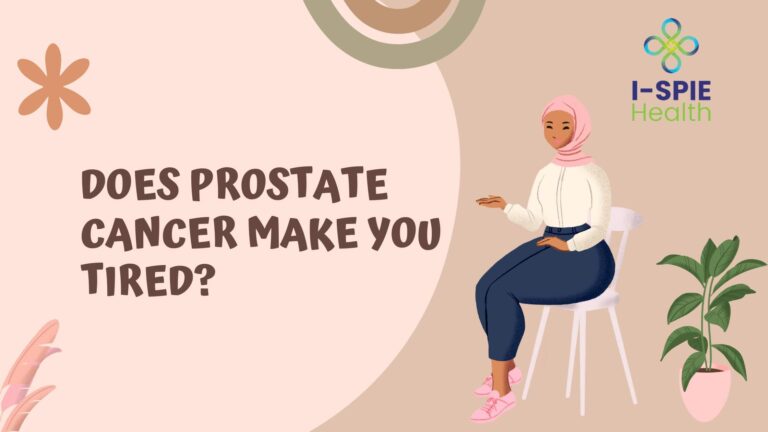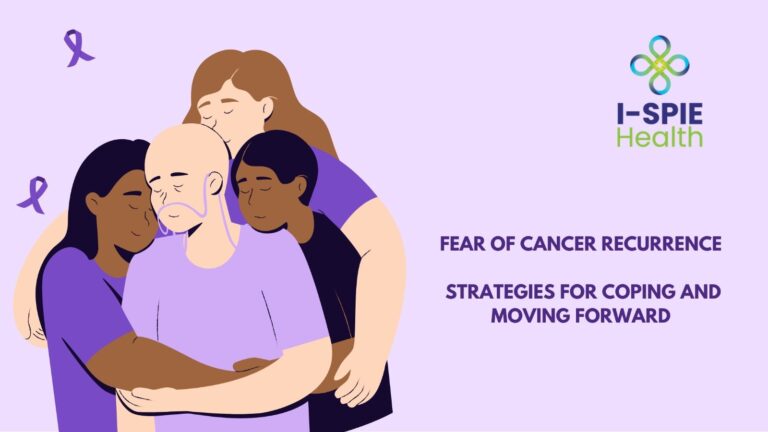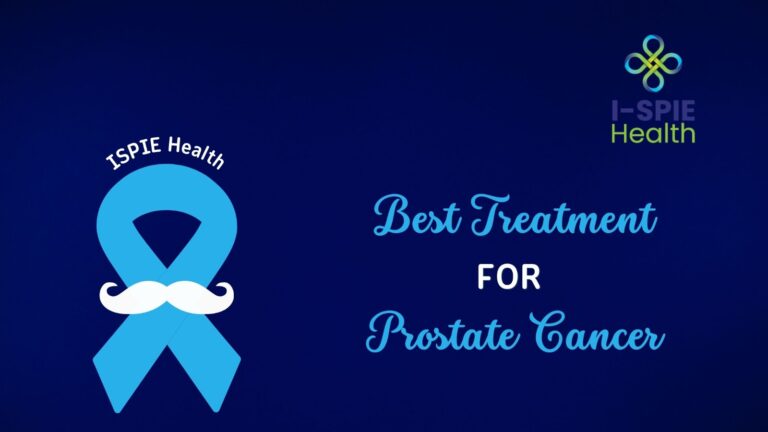Receiving a diagnosis of Stage 4 Vulvar Cancer can evoke a range of emotions, from overwhelming to frightening. With the right support and guidance, individuals can navigate this daunting journey with greater assurance. A vital ally in this course is a cancer coach. In this comprehensive guide, we will explore the role of a cancer coach in supporting individuals with Stage IV Vulvar cancer, with a focus on how Madhavi Parikh, a clinical cancer coach, aids patients in this specific condition.
What Is Vulvar Cancer?
Vulvar Cancer is a rare type of cancer that affects the external female genitalia, specifically the vulva. It typically develops in the outer vaginal lips (labia majora) or the inner vaginal lips (labia minora), though it can occur anywhere on the vulva. Vulvar cancer often presents as a lump or sore on the vulva, accompanied by symptoms such as itching, pain, and bleeding.
Stages Of Vulvar Cancer
Stage 0 (Carcinoma in situ)
This stage, also known as carcinoma in situ, refers to cancer that is confined to the surface layers of the vulvar skin and has not invaded deeper tissues. At this stage, the cancer cells are only present in the top layers of the skin and have not yet penetrated the underlying tissue. Carcinoma in situ is considered the earliest stage of vulvar cancer and is highly treatable with excellent prognosis.
Stage I
In stage I Vulvar Cancer, the cancer is confined to the vulva and is relatively small in size. It may involve the labia majora, labia minora, or clitoris but has not spread to nearby lymph nodes or other organs. Stage I is further divided into subcategories based on the size and location of the tumor.
Stage II
Stage II Vulvar Cancer indicates that the tumor has grown larger and may have spread to nearby tissues or structures, such as the lower part of the urethra, the lower part of the vagina, or the anus. However, it has not yet reached the nearby lymph nodes or distant organs.
Stage III
At this stage, the cancer has spread to nearby lymph nodes or has invaded nearby structures more extensively, such as the upper part of the urethra, upper part of the vagina, or pelvic wall. Stage III Vulvar Cancer may involve multiple lymph nodes or larger lymph node clusters.
Stage IV
Stage IV Vulvar Cancer is the most advanced stage, indicating that the cancer has spread beyond the vulva to distant organs or tissues. These may include the bladder, rectum, pelvic bone, or distant lymph nodes. Based on the extent of metastasis and the organs involved, stage IV vulvar cancer is further divided into subcategories.
Survival Rate of Stage 4 Vulvar Cancer
In Stage IV Vulvar Cancer, survival odds are typically lower because the cancer has advanced and may have spread to vital organs. Nonetheless, survival rates can vary based on factors such as the individual’s overall health, the extent of cancer spread, and the effectiveness of treatment.
Survival rates for Vulvar Cancer vary based on disease stage. As we discussed in our previous article, can you survive lung cancer if caught early? At the earliest stage, carcinoma in situ, nearly 100% of individuals survive for five years. However, as the cancer advances, survival rates diminish: Stage I hovers around 85-90%, Stage II drops to about 65-75%, Stage III falls to approximately 40-60%, and Stage IV decreases further to around 15-25%.
It’s important to remember that individual outcomes may vary due to factors such as age, overall health, and treatment effectiveness.
How Is Stage 4 Vulvar Cancer Typically Treated?
Treatment for Stage IV Vulvar Cancer often involves a combination of therapies, including surgery, radiation therapy, chemotherapy, and targeted therapy. The goal of treatment is to control the spread of the cancer, alleviate symptoms, and improve quality of life.
Surgery
Surgery may still be an option for some Stage IV Vulvar Cancer patients, depending on the extent of the disease and the individual’s overall health. Surgical procedures may include radical vulvectomy to remove the primary tumor and affected lymph nodes or palliative surgery to alleviate symptoms and improve quality of life.
Radiation Therapy
Radiation therapy is often used to shrink tumors, relieve symptoms such as pain or bleeding, and slow the progression of Stage 4 Vulvar Cancer. External beam radiation or brachytherapy (internal radiation) may be employed, either as primary treatment or in combination with other therapies.
Chemotherapy
Chemotherapy is recommended for stage IV to target cancer cells throughout the body. It can be administered orally or intravenously and may be used alone or in combination with surgery and radiation therapy. Chemotherapy aims to control the spread of the disease, alleviate symptoms, and improve quality of life.
Targeted Therapy
Targeted therapy drugs may be prescribed for stage IV Vulvar Cancer patients whose tumors have specific genetic mutations or biomarkers. These drugs work by targeting specific molecules or pathways involved in cancer growth and progression, potentially offering more precise and effective treatment with fewer side effects compared to traditional chemotherapy.
Palliative Care
Palliative care focuses on relieving symptoms, managing pain, and improving the quality of life for Stage IV patients. It may involve medications, supportive therapies, counseling, and other interventions aimed at addressing physical, emotional, and spiritual needs. Palliative care can be provided alongside curative treatments or as the primary focus of care for patients with advanced-stage cancer.
Survival Strategies for Stage 4 Vulvar Cancer
Surviving Stage IV Vulvar Cancer requires a holistic approach. It begins with seeking comprehensive medical care that is tailored to manage symptoms and enhance quality of life. It may include surgery, radiation, chemotherapy, and/or palliative care.
Alongside medical treatments, emotional support from your loved ones, counseling, and specialized cancer coaching will offer much-needed strength and resilience. Making small lifestyle changes, such as adopting a healthier diet and practicing stress-reduction techniques, can further support your overall well-being.
Lifestyle changes, such as healthy eating and stress reduction, can support overall well-being. Finding hope and meaning and celebrating victories along the way is crucial for maintaining a positive outlook despite the challenges.
By addressing physical, emotional, and practical aspects, individuals can strive to live life fully despite the diagnosis.
The Role Of Cancer Coach In Vulvar Cancer Care
Cancer coaches play a vital role in supporting individuals with Vulvar Cancer care, particularly those with Stage IV. Their role encompasses various aspects of support, including:
Emotional Support
Dealing with a diagnosis of Stage 4 Vulvar Cancer can evoke a range of emotions, including fear, anxiety, sadness, and anger. A cancer coach provides a compassionate and nonjudgmental space for individuals to express their feelings, process their emotions, and find coping strategies to navigate the emotional challenges of cancer.
Information And Education
Understanding the complexities of Stage IV Vulvar Cancer and its treatment options can be overwhelming. A cancer coach helps individuals access reliable information, clarify medical terminology, and understand their diagnosis and treatment plan. They empower patients to make informed decisions about their care and advocate for their needs.
Lifestyle And Wellness
Managing the physical symptoms and side effects of Stage 4 Vulvar Cancer, such as pain, fatigue, and loss of appetite, requires a holistic approach to wellness. A cancer coach offers guidance on nutrition, exercise, stress management, and complementary therapies to support overall health and well-being during treatment and beyond.
Communication And Advocacy
Effective communication with healthcare providers, family members, and caregivers is essential for coordinating care and accessing necessary support services. A cancer coach helps individuals communicate their needs, concerns, and preferences effectively, advocating for personalized care and empowering patients to take an active role in their healthcare journey.
How Madhavi Parikh Can Support You Through Your Journey with Stage IV Vulvar Cancer:
Madhavi Parikh is a highly skilled and experienced cancer coach who specializes in supporting individuals with stage IV cancer. With her compassionate approach and deep understanding of the challenges facing cancer patients, Madhavi provides personalized support tailored to each individual’s unique needs. Some ways in which Madhavi Parikh helps individuals with Stage IV Vulvar Cancer include:
- It provides emotional support and a safe space for individuals to express their feelings and fears without judgment.
- Offers education and information about vulvar cancer, its treatment options, and practical strategies for managing symptoms and side effects.
- Collaborates with individuals to develop personalized wellness plans that address their Physical, Emotional, and Spiritual needs.
- Assists with communication and advocacy by helping individuals navigate interactions with healthcare providers, communicate their preferences and concerns, and access appropriate support services.
- Empower individuals to cultivate resilience, find meaning and purpose in their cancer journey, and live life to the fullest despite the many challenges they may face.
Empower your Journey Against Stage IV Vulvar Cancer
Find personalized support, expert guidance, and compassionate care. Take the first step towards hope and healing.
Schedule Free Consultation Today!
Conclusion
Navigating Stage 4 Vulvar Cancer can be daunting, but with the support of a skilled cancer coach like Madhavi Parikh, individuals can find hope, strength, and empowerment along the way. By addressing the emotional, informational, practical, and advocacy needs of patients, cancer coaches play a crucial role in enhancing quality of life and promoting holistic well-being during cancer treatment and survivorship.
FAQ
What is the prognosis of Stage IV Vulvar Cancer?
The prognosis for stage IV Vulvar Cancer varies depending on factors such as the size and location of the tumor, whether cancer has spread to nearby lymph nodes or distant organs, and the individual’s response to treatment. It’s essential to discuss prognosis and treatment options thoroughly with the medical team.
What are the common symptoms of Stage IV Vulvar Cancer?
Common symptoms of stage IV vulvar cancer may include persistent pain or discomfort in the vulva or pelvic area, changes in bowel or bladder habits, abnormal vaginal bleeding, and noticeable lumps or growths in the genital area. However, symptoms can vary widely among individuals.
What are the treatment options for Stage IV Vulvar Cancer?
Treatment options for stage IV vulvar cancer may include surgery, radiation therapy, chemotherapy, targeted therapy, or a combination of these approaches. The choice of treatment depends on factors such as the extent of the cancer, the individual’s overall health, and treatment goals.
What is the role of palliative care in Stage IV Vulvar Cancer?
Palliative Care improves the quality of life for individuals facing advanced cancer by managing symptoms, providing pain relief, and addressing emotional and spiritual needs. Palliative care specialists collaborate with other specialists to offer holistic support, helping patients and their families navigate treatment decisions, cope with the challenges of living with cancer, and maintain dignity and comfort throughout the illness journey. It focuses on enhancing overall well-being and ensuring that patients receive holistic care tailored to their individual needs and preferences.








2 Comments